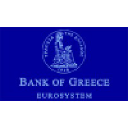← Home
Company Overview | Competitive advantages | Market | Competition | Capital & Finance | Products | Customers | Future Perspectives & Strategy | Stock market | Risks | Innovation | Employees | Operation | Company management | Legal and Regulatory Compliance |
🚀 Sign up Free for Public Company Valuation & Insights!
Sign up for free to get access to the best public company valuation and insights. Get started today and unlock the potential of your investments!
Sign up free Video Highlights
Bank of Greece
4.9%
Financial services / Central banking and financial services
At a Glance | Core Facts | Company Due Diligence: | Industry Due Diligence: | Competitors | Stock Swings | News | Income | Balance | Cash Flow | Growth | Enterprise | Ratios | Metrics | Dividends | Risks | SWOT | Porter's Five Forces | PEST | Score Positive | Clusters | Reports | WebCompany Overview | Competitive advantages | Market | Competition | Capital & Finance | Products | Customers | Future Perspectives & Strategy | Stock market | Risks | Innovation | Employees | Operation | Company management | Legal and Regulatory Compliance |
Company Overview
General information about the Bank of Greece company
A: The Bank of Greece is the central bank of Greece, responsible for monetary policy and financial stability in the country. It was established in 1927 and is headquartered in Athens. It is a member of the European System of Central Banks and participates in the formulation and implementation of the European Union’s monetary policy. The Bank of Greece also oversees the operations of banks and other financial institutions in Greece and manages the country’s foreign exchange and gold reserves. It is led by a Governor and a Monetary Policy Council and is accountable to the Greek Parliament.
What is special about the Bank of Greece company?
The Bank of Greece is the central bank of the Hellenic Republic and the oldest institution in continuous operation in the country. It was founded in 1927 and is responsible for promoting the stability of the monetary system, preserving the wealth of the country and supporting the economic policy of the government.
One of the key responsibilities of the Bank of Greece is to issue and manage the country’s currency, the euro. It also acts as the supervisor of Greek banks and works to maintain the stability and soundness of the financial system.
Another important role of the Bank of Greece is to conduct monetary policy, using tools such as interest rates and open market operations to achieve key objectives such as price stability and economic growth.
The Bank of Greece is also involved in international and European cooperation, representing Greece in various international organizations and participating in the European Central Bank’s decision-making bodies.
Overall, the Bank of Greece plays a crucial role in the country’s economy and financial system, making it a key player in Greece’s economic development and stability.
One of the key responsibilities of the Bank of Greece is to issue and manage the country’s currency, the euro. It also acts as the supervisor of Greek banks and works to maintain the stability and soundness of the financial system.
Another important role of the Bank of Greece is to conduct monetary policy, using tools such as interest rates and open market operations to achieve key objectives such as price stability and economic growth.
The Bank of Greece is also involved in international and European cooperation, representing Greece in various international organizations and participating in the European Central Bank’s decision-making bodies.
Overall, the Bank of Greece plays a crucial role in the country’s economy and financial system, making it a key player in Greece’s economic development and stability.
Wait! There's more — sign up for free or log in